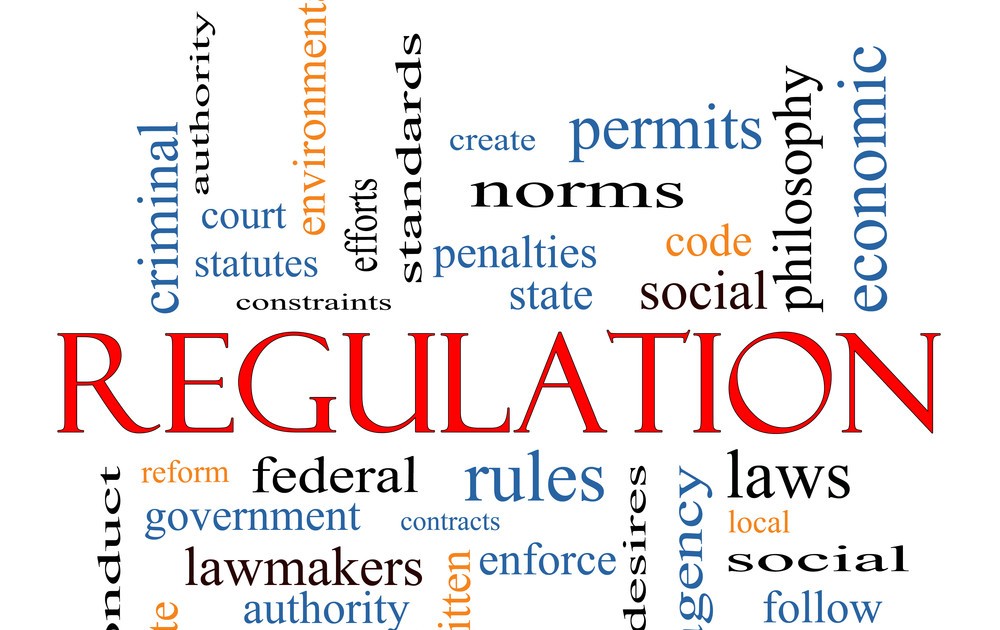Insiders Charged For Failure to Update Disclosures In Going Private Transactions
On March 13, 2015, the Securities and Exchange Commission (SEC) charged eight officers, directors, or major shareholders of public companies in connection with going private transactions. According to the SEC, the defendants failed to update their stock ownership disclosures to reflect material changes, including steps to take the companies private. Each of the respondents, without admitting or denying the SEC’s allegations, agreed to settle the proceedings by paying a financial penalty.
The charges involve outdated disclosures in reports filed by “beneficial owners” who hold more than 5 percent of a company’s stock. Federal securities laws require beneficial owners to promptly file an amendment when there is a material change in the facts previously reported by them on Schedule 13D, commonly referred to as a “beneficial ownership report.” The disclosure requirements include plans or proposals that would result in certain transactions, such as a going private transaction. Read More
Form D – Notice of Sales – Going Public Lawyers
Posted By Brenda Hamilton, Securities Lawyer
Companies may use an exemption under Regulation D to offer and sell securities without having to register the offering with the Securities and Exchange Commission (“SEC”). When relying on such an exemption, companies must file what’s known as a “Form D” after they first sell their securities. Form D is a brief notice that includes basic information about the company and the offering, such as the names and addresses of the company’s executive officers, the size of the offering and the date of first sale. Read More
SEC Charges HD Vest Investment Securities
On March 4, 2015, the Securities and Exchange Commission (SEC) announced it had charged HD Vest Investment Securities with violating key customer protection rules after failing to adequately supervise registered representatives who misappropriated customer funds.
HD Vest Investment Securities agreed to settle the charges by paying a financial penalty and retaining an independent compliance consultant to improve its supervisory controls.
According to the SEC’s order instituting a settled administrative proceeding, HD Vest has more than 4,500 registered representatives typically working as independent contractors who also operate tax businesses outside of their securities businesses. HD Vest failed to have proper policies and procedures in place to monitor its representatives’ outside business activities, and as a result some representatives used their outside businesses to defraud brokerage customers in such ways as transferring or depositing customer brokerage funds into their outside business accounts. Read More
SEC Adds Additional Defendant In Shaw Insider Trading Case
Posted by Brenda Hamilton Securities Lawyer
On March 6, 2014, the Securities and Exchange Commission (SEC) announced it had added Billy Joe Adcox, Jr. of Ruston, Louisiana to a civil injunctive action in the United States District Court for the Western District of Louisiana, alleging that Adcox, Scott Zeringue and Jesse Roberts, III engaged in insider trading in the securities of The Shaw Group, Inc. (“Shaw”) ahead of a public announcement that Shaw was going to be acquired by Chicago Bridge & Iron Company N.V. (“CBI”).
The SEC alleges that Adcox was tipped by his long-time friend, Jesse Roberts, III, also of Ruston, Louisiana. According to the SEC’s insider trading complaint, Adcox knew Roberts got the confidential information about the impending merger from Roberts’ brother-in-law, Zeringue, a Shaw insider. Adcox and his relative allegedly bought Shaw stock based on the tip and, about two weeks later, sold the stock for a profit of over $111,000. Adcox’s relative also tipped a third unnamed individual, who made about $43,000. Read More
FINRA Fines LaSalle Securities For Private Placements

The Financial Industry Regulatory Authority (“FINRA”) and the Securities and Exchange Commission require that broker-dealers perform adequate due diligence before letting a registered representative recommend private placements made pursuant to Regulation D of the Securities Act of 1933, as amended (the “Securities Act”). FINRA listed due diligence of private placements as a concern in its 2015 Regulatory and Examination Priorities). FINRA’s recent case against LaSalle St. Securities LLC (“LaSalle”) demonstrates that this due diligence obligation is mandatory even for private placement offerings made to accredited investors.
FINRA found certain deficiencies that occurred at various times during a four-year period in connection with the offerings of four issuers. The findings stated that with respect to private placement offerings, LaSalle Securities failed to exercise adequate due diligence before allowing a registered representative to recommend the offering to four accredited investors and distributed a private-placement memorandum to potential investors that did not include certain material facts and relied on a flawed methodology for projecting return on investment. Read More
SEC Periodic Reporting – SEC Reporting Requirements – Going Public Lawyers
Companies become subject to the SEC’s periodic reporting requirements a number of ways including by filing a registration under the Securities Act of 1933, as amended or pursuant to the Securities Exchange Act of 1934. The SEC periodic reporting rules require that publicly traded companies disclose a wealth of information to the public. Periodic reporting also requires that these reports be written in plain English. Understanding these reports helps investors make informed decisions regarding whether to buy, sell or hold a company’s securities.
Periodic reports provide issuers with the opportunity to provide shareholders with transparency by telling their story. Companies that provide materially false or misleading statements, or omit material information that is necessary to render a report not misleading in their periodic reports are subject to liabilities arising under federal and state securities laws. Investors can obtain a company’s Form 10-K, Form 10-Q and Form 8-K filings on the SEC’s EDGAR database. Read More
What is Form 13F? Going Public Attorneys

Institutional Investment Managers that exercise investment discretion of $100 million or more in Section 13(f) securities holdings, which include holdings in exchange-traded securities, shares of closed–end investment companies and certain convertible debt securities, must publicly disclose their holdings on Form 13F each quarter.
An “Institutional Investment Manager” is an entity that either invests in, or buys and sells, securities for its own account. As such, banks, insurance companies, and broker/dealers, corporations and pension funds that manage their own investment portfolios are subject to the rule if they invest in, or buy and sell securities for their own account. Read More
DTC Eligibility Q & A – Creating Liquidity with Electronic Trading
Posted By Brenda Hamilton, Securities Lawyer
The Depository Trust and Clearing Corporation (“DTCC”), through its subsidiaries, provides clearing, settlement and information services for securities. DTCC’s subsidiary, the Depository Trust Company (“DTC”) was created to improve efficiencies and reduce risk in the clearance and settlement of securities transactions. Not all securities are eligible to be settled through DTC. DTC Eligibility has become an often unexpected burden for companies in going public transactions.
Issuers must satisfy the criteria set by DTCC to be settled through DTC. All companies must satisfy this criteria in order to be DTC eligible, including both Securities and Exchange Commission (“SEC”) reporting and non-reporting issuers. This Securities Lawyer 101 Series discusses the most common questions we receive about DTC eligibility in going public transactions. Read More
Periodic Reporting for Foreign Issuers – Going Public Lawyers

A foreign private issuer seeking to go public in the U.S. can file a registration statement covering a public offering of securities under the Securities Act of 1933, as amended (“Securities Act”), register a class of equity securities under the Securities Exchange Act or it may do both. Foreign issuers can conduct direct public offerings or an initial public offering by filing a registration statement under the Securities Act. A Securities Act registration statement contains a prospectus, along with other information required by the securities laws. Under both the Securities Act and the Exchange Act, a registration statement filed by a foreign issuer must be declared effective by the SEC.
Foreign private issuers use the “F” series registration statements and Form 20-F and Form 6-K reports for their annual and current reports. The SEC disclosure forms available to foreign issuers are designed with reference to international disclosure standards, both in scope and timing requirements for filing. Read More
Foreign Private Issuer Disclosure Obligations – Going Public Lawyers
Foreign issuers seeking to go public and access the U.S. capital markets must comply with the requirements of the Securities Act of 1933 (Securities Act) and the Securities Exchange Act of 1934 (Exchange Act). The Securities Act requires foreign issuers that offer and sell securities in the United States to file a registration statement with the SEC. The Exchange Act requires foreign issuers to register a class of equity securities in order to list their securities on a national securities exchange, or if certain asset and shareholder thresholds are met.
Once a foreign issuer completes a going public transaction, the Exchange Act requires it to provide certain information to the public in periodic reports published through its Electronic Data Gathering, Analysis, and Retrieval system also known as “EDGAR”. Read More
Can I Sell Shares Under Section 4(1)? Going Public Lawyers
Rule 144 (“SEC Rule 144”) under the Securities Act of 1933 (“Securities Act”) provides a safe harbor from the registration statement provisions of the Securities Act for resale of restricted and control securities by persons other than the issuer if all conditions of the rule are complied with.
Section 4(1) of the Securities Act provides an exemption for a transaction “by a person other than an issuer, underwriter, or dealer.” If the requirements of Rule 144 are met for securities not covered by a registration statement, the seller will not be deemed an underwriter and will be entitled to rely upon the safe harbor of Rule 144 to resell their restricted stock.
Michigan Embraces Crowdfunding
Posted by Brenda Hamilton, Securities and Going Public Lawyer
Michigan recently made a move to assist Michigan small businesses with their investment crowdfunding endeavors. Michigan became the first state to establish an intrastate market where broker-dealers can sell securities of Michigan-based companies using crowdfunding. The signing of House Bill 5273 by Michigan’s preexisting intrastate exemption from securities registration known as the Michigan Invests Locally Exemption (“MILE Act”), allows Michigan businesses to raise capital using the Internet and/or though general solicitation by selling the exempt securities within a newly-created alternative intrastate market. Read More
Broker Dealer Registration 101
Posted by Brenda Hamilton, Securities and Going Public Lawyer
Broker-dealers are subject to regulation by the SEC, FINRA and any other Self-Regulatory Organizations (“SRO”) such as stock exchanges, as well as the states in which they do business. The Securities Exchange Act of 1934 (“Exchange Act”) requires that any broker-dealer effecting securities transactions by means of interstate commerce be registered. State laws also regulate broker-dealer activity within their jurisdictions. Unless an exemption from registration is available, state laws require registration of any broker-dealer doing business from or with persons in their state, as well as the broker-dealer’s employees doing business within the state. Read More
Retweets, Social Media & Being Public – Going Public Lawyers
Posted by Brenda Hamilton, Securities and Going Public Lawyer
It has become almost routine for public companies to use social media to interact with their shareholders, and customers. The Securities and Exchange Commission (the “SEC”) has provided guidance in compliance and disclosure interpretations addressing the use of Twitter, Facebook, and other forms of social media. It is important that public companies and companies engaged in going public transactions familiarize themselves with the SEC’s rules concerning social media.
Active Hyperlinks & Disclosure Obligations
The SEC has stated that the use of social media and hyperlinks using social media platforms, such as Twitter, that limit the number of characters or amount of text that can be included in the communication, effectively making it impossible for firms to include the required legends and other disclosures. Read More
Short Swing Profits Q & A By: Brenda Hamilton Securities Lawyer
Posted by Brenda Hamilton, Securities and Going Public Lawyer
The “Short Swing Profit” rules were created to prevent insiders, who have greater access to material company information, from taking advantage of information for the purpose of making short-term profits from trading an issuer’s securities. This Securities Lawyer 101 Q & A addresses the most common questions we receive about Short Swing Profits. Read More
Caledonian Securities & Caledonian Bank Seized by Cayman Officials
Posted by Brenda Hamilton, Securities and Going Public Lawyer
Following an action by the Securities and Exchange Commission (SEC) last week and an asset freeze order, the Cayman Islands Monetary Authority has taken control of Caledonian Bank and Caledonian Securities. According to charges by the SEC on February 7, 2014, Caledonian, Clear Water Securities, Legacy Global Markets S.A., and Verdmont Capital S.A. functioned as affiliates, unregistered brokers, dealers, and underwriters, in connection with four penny stock issuers: Swingplane Ventures (SWVI), Goff Corp. (GOFF), Nostra Energy (NORX) and Xumanii Inc. (now Imerjn Inc., IMJN).
DTC Eligibility Explained By The Going Public Attorneys
Posted by Brenda Hamilton, Securities and Going Public Lawyer
Q. What is The Depository Trust Company (“DTC”)?
A. DTC is the only stock depository in the United States.
Q. How do public companies obtain a DTC eligibility?
A. Issuers must satisfy specific criteria to receive an initial DTC eligibility, and to remain DTC eligible. Even after those securities become eligible, DTC may limit or terminate its services. Read More
Does FINRA Approve Going Public Transactions? Going Public Attorneys
By The Going Public Attorneys – The Financial Institution Regulatory Authority (FINRA) plays an important role in going public transactions. While filing a registration statement on Form S-1 will make a company reporting with the Securities and Exchange Commission, it will not cause the company’s stock to trade and it will not result in a ticker symbol. Only FINRA can assign a stock ticker symbol. FINRA is the largest non-governmental regulator of broker-dealers in the U.S. FINRA oversees nearly several thousand brokerage firms, hundreds of thousands of their branch offices as well as their registered securities representatives.
FINRA is dedicated to investor protection and market integrity through effective and efficient regulation of the securities markets
FINRA is an independent, not-for-profit organization authorized by Congress to protect America’s investors by making sure the securities industry operates fairly and honestly.
FINRA does this by: Read More
Penny Stock Lawyers, Auditors & Nominees Charged by SEC
On January 15, 2015, the Securities and Exchange Commission (SEC) announced charges against penny stock lawyers, auditors, and others allegedly involved in a microcap scheme involving bogus Form S-1 registration statements filed with the SEC. According to the SEC, John Briner, a Canadian Attorney and stock promoter caused the companies to file 20 bogus Form S-1 registration statements with phony cookie cutter business plans. According to the SEC, because John Briner had been suspended from practicing law before the Commission, he recruited clients and associates to become nominees while he secretly controlled the companies from behind the scenes. The registration statements falsely stated that each CEO was solely running the company when in fact Briner was making all material decisions. Read More
SEC Charges Oppenheimer For Penny Stock Sales
Last week, the Securities and Exchange Commission (“SEC”) announced charges against Oppenheimer & Co. for violations of federal securities laws for improperly selling penny stocks in unregistered offerings on behalf of customers. Oppenheimer agreed to admit wrongdoing and pay $10 million to settle the SEC’s charges. Oppenheimer will pay an additional $10 million to settle a parallel action by the Treasury Department’s Financial Crimes Enforcement Network (“FinCEN”). Read More
SEC Issues Investor Alert on Cybersecurity
On February 3, 2015, the Securities and Exchange Commission (“SEC”) addressed cybersecurity at brokerage and advisory firms and provided suggestions to investors on ways to protect their online investment accounts. “Cybersecurity threats know no boundaries. That’s why assessing the readiness of market participants and providing investors with information on how to better protect their online investment accounts from cyber threats has been and will continue to be an important focus of the SEC,” said SEC Chair Mary Jo White. “Through our engagement with other government agencies as well as with the industry and educating the investing public, we can all work together to reduce the risk of cyber attacks.” Read More































